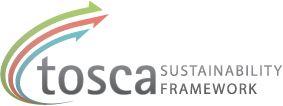Keyword: SCA (16)
About SCA
SCA is a global hygiene and paper company that develops and produces personal-care products, tissue, packaging solutions, publication papers and solid-wood products. Sales are conducted in some 100 countries. SCA has many well-known brands, including the global brands Tena and Tork. Sales in 2010 amounted to SEK 109 billion (EUR 11.5 billion). SCA has about […]
Partners
AkzoNobel Johan Widheden, Project manager Karin Halldén, Eco-efficiency specialist Sandra Bodén, Environmental assessment consultant Chalmers University of Technology Johan Tivander, Research engineer Ulrika Palme, Senior Lecturer Anne-Marie Tillman, Professor Bengt Steen, Adjunct Professortd SCA Hygiene Products AB Ann-Christin Pålsson, Environmental specialist Ellen Riise, Senior scientist Britt-Marie Helmberg, Sourcing manager Jonas Grufman, Supplier performance development manager Björn […]
Assessing product safety for users of SCA personal care products
By A product safety assessment is performed for all raw materials used in personal care products marketed by SCA. The purpose of the assessment is to secure that products supplied; are safe for consumers to use as intended, as well as for reasonable foreseeable misuse comply with relevant legal requirements Procedure The product safety assessment […]
Code of Conduct
By The SCA Code of Conduct contains guidelines for SCA and individual employees in regard to such issues as health and safety, employee relations, human rights, business ethics and community involvement. It includes special references to child and forced labor and procedures on how to report violations of the Code. The Code of Conduct applies to all […]
Environmental evaluation as part of the product development process
By Since the mid-90s an environmental evaluation is an integrated part of the way of working for development of SCA hygiene products. The evaluation is performed at a specific decision stage in the development process of materials and products, and is performed using life cycle assessment (LCA). Way of working The evaluation consists of a comparison […]
Environmental management systems at SCA facilities for personal care products
By Environmental management systems according to ISO 14001 are implemented at SCA manufacturing facilities to secure structured and systematic work with environmental issues within the facilities. The work with implementing and maintaining the environmental management systems is run by each production facility. All facilities for personal care products in Europe have a QRESH coordinator, with responsibility […]
Occupational health and safety in the SCA hygiene business
By The work with occupational health and safety issues for the SCA hygiene business includes procedures for hazard and risk assessment of chemicals and materials that are introduced within process development and at the manufacturing facilities. For chemical products, a specific chemical assessment is performed and if there are specific concerns, also a toxicology assessment […]
Overview of SCA´s sustainability activities in the value chain
By Many of the SCA examples at the TOSCA website are based on experiences from the SCA personal care business which includes baby, feminine and incontinence care. The environmental work for SCA personal care products in Europe is based on a life cycle approach, that includes Active sourcing of raw materials, Clean production within manufacturing facilities […]
Resource management system (RMS) for manufacturing facilities
By The Resource Management System (RMS) is a global SCA management system where all manufacturing facilities collect data and report the total resources used, effluents to water, emissions to air and waste from the units. The measured data is used in the steering of the SCA environmental work and is published in the annual SCA […]
Following societal waste management models and trends
By For the SCA personal care business, societal waste management models and trends is mapped to understand the consumers’ needs and problems regarding waste management, and find ways to facilitate waste management for the consumers and reduce the overall environmental impact from waste management. In the work, information are collected and compiled about how the […]

